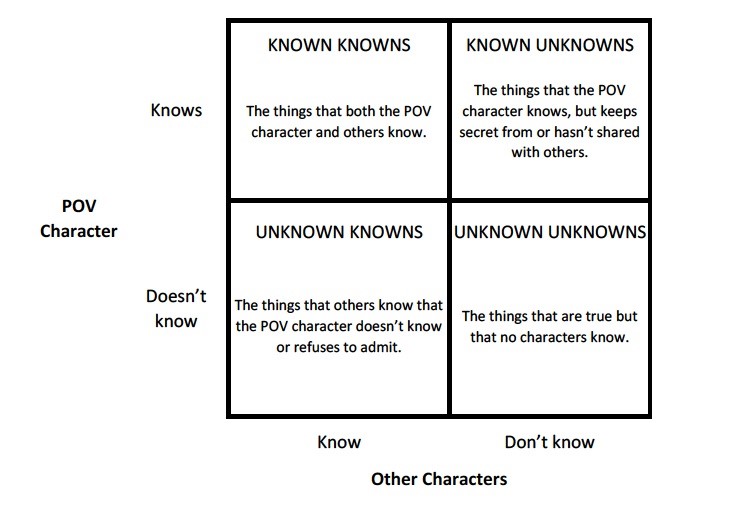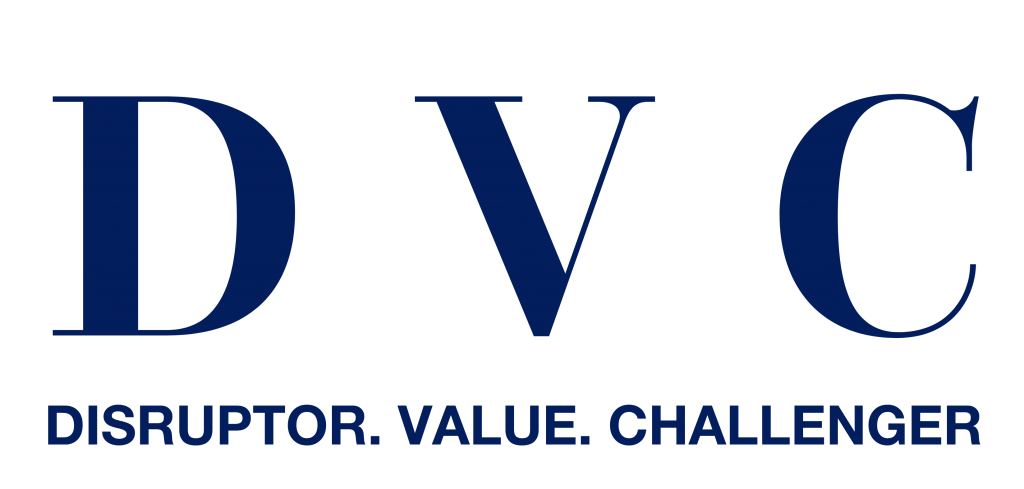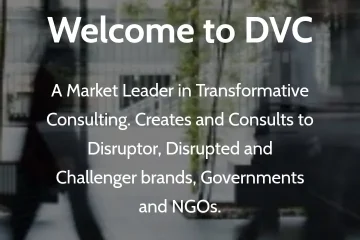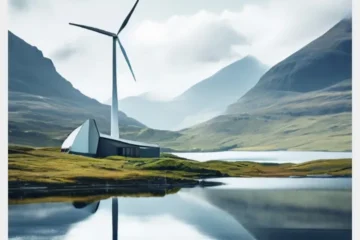Applying the Rumsfeldian Knowledge Matrix to predict the economic, socio-political, scientific and technological impacts of the Coronavirus.
When asked what sort of thing was most likely to blow governments off course, Harold MacMillan, then British Prime Minister famously replied, “events, dear boy, events”. This line is particularly apposite as governments around the world face the Pandemic, Covid -19.
We at DVC, have been helping clients with what then-US Secretary of Defense, Donald Rumsfeld once famously called ‘unknown unknowns’ – the things we didn’t know we didn’t know – since 1995. Whilst we cannot claim to have anticipated the Coronavirus outbreak, through our LOAF methodology – Leadership and Organisations in Anarchic Flux – we have literally decades in advising organisations facing change and disruption.
A key lesson we have learned over the years is that bad decisions are often taken because people do not pause to examine the evidence in front of them. During times of violent change and disruption management teams can face information overload, and the situation with Covid-19 is no different. We thought therefore that it might be helpful to look at what we do know, and what we don’t. Oddly, given the flack he got at the time, a very useful tool for this is what has become known as the Rumsfeld Matrix of Epistemic Uncertainty:

Known Knowns
What we know that we know about the current situation: some of the headlines:
1 Economic
- The extent of the damage on global economies will depend on how quickly the virus is contained, the steps authorities take to contain it, and how much economic support governments are willing to deploy during the epidemic’s immediate impact and aftermath.
- The figures are, frankly, scary. Estimates for UK GDP for the second quarter suggest that national output may drop by 30% with some sectors, hospitality for example, faring a good deal worse. Bear in mind, by way of comparison, that during the Great Depression, global GDP fell by around 26%…
- We also know that, necessary though the huge expenditures by governments are, we will be paying for the Covid-19 outbreak for many years, maybe even decades. To date, European Countries have adopted a fiscal stimulus package totalling on average 2% of their national GDP and provided liquidity of around 13 %. However, the European Central Bank has warned that the stimulus may have to be doubled to be successful.
2 Scientific
- Somewhat tautologically, a known known is that we don’t yet know everything we need to about the pathogen itself. Science’s knowledge of the virus is growing exponentially, and the disease’s genome was mapped very rapidly. However, there are still major gaps in that knowledge – we do not yet have a clear understanding of the virus’s behaviour, transmission rate, and the full extent of contagion; uncertainty will be part of the backdrop for the foreseeable future.
3 Socio-political Impact
- At this stage the impact of almost global lockdown of populations is difficult to predict but some truths are already becoming evident. The economic effect in terms of job losses is being felt throughout Europe and the USA. The numbers claiming benefits on these continents has not been seen before. In the UK it remains to be seen whether the Universal Credit System will be able to process the claims, and the government is currently berating the banks for not making corporate loans, particularly to the SME sector available.
- Civil Unrest is beginning to rear up in both Italy and Spain, as the body counts mount and the economic hardship bites. Also, the Indian Subcontinent is experiencing riots as populations move from large cities to rural areas.
4 Technology
- In the UK as we applaud the NHS we could also include a clap for the telecommunications industry.so far high-speed broadband has mostly stood up which has made self-isolation more tolerable and has arguably contributed greatly to the prevention of the spread of disease. Netflix and Prime Video have risen to the challenge and Zoom has been a revelation for communities and friends to stay in touch. By giving each meeting a URL internet address, within 5 seconds you are in your meeting. The company is now valued at a little under $40 billion.
- Social Media, whilst having its global detractors, due to the inevitable spread of fake news has also aided in both important medical and scientific education and in keeping friends and families in touch.
Known unknowns
What, about the current situation do we know that we don’t know? Again, some headline issues:
1 Economic
- We all know that there will be a significant hit in terms of economic growth. The trouble is no-one knows exactly how big that hit will be. Obviously, this depends to a large degree on how long the lockdown continues and the lasting damage which is caused. The experience of the lockdown in West Africa during the 2014-15 Ebola outbreak strongly suggests that the longer-term economic effects are considerably worse than the disease itself.
- This of course leads to the question of when the economy might be allowed to start recovery – i.e., when will restrictions be lifted? What will be the correct ‘health/ wealth’ tipping point? But thereafter, will the economy return to something like its former self, or will some sectors have been so badly damaged that they take a long time to recover, if ever?
2 Scientific
- How long will it take to develop a vaccine? This of course is the big question. Normally even an expedited development of a vaccine takes 18-24 months, but might processes be accelerated in this case?
- Testing. Again, a key question, but testing for what? Has someone currently got the disease and so contagious, or have they had it and therefore now have immunity? And how quickly can testing realistically be rolled out to a huge proportion of the world’s entire population?
3 Socio-political Impact
- How long can you realistically maintain a lockdown before people get fed up and, potentially, rebellious. At present, most people seem to regard the restrictions as a necessary evil. But as the weeks progress, how long will this hold true?
- Charities have already been talking about the potential for increases in domestic abuse, and child abuse in the home. It is not yet clear how big that increase will be, or how much worse the situation might get the longer any lock-down carries on for.
- In the longer run, what might be the impacts on the way individuals and societies work. From a mental health perspective, the lockdown may leave some people with long-term mental scars. At the level of society, what will the impacts be? Will people remember the moments of shared experience like applauding healthcare staff and so rekindle something like the ‘Dunkirk Spirit’? Or will the legacy be one of rampant selfishness as demonstrated by huge amounts of panic buying?
4 Technology
- To what extent will ‘normal’ working structures reassert themselves after the outbreak, or will people take the view that they’ve managed pretty well from home so far, so why return to the daily grind of the commute?
- We’ve already seen significant jumps-forward in medical technology, for example a new type of respirator – cheaper and quicker to manufacture than normal ones – produced by Imperial College, London and the Mercedes F1 team. What other leaps in technology might Covid-19 bring about?
Unknown knowns
Rumsfeld’s words have been turned into a poem, written by an unknown poet (very appropriately!) and included in a collection of poems all based on speeches by Donald Rumsfeld, Pieces of Intelligence, by Hart Seely. This category of information is described thus: “there are unknown knowns, the knowns we do not want to know”. What then should we know, but prefer to ignore?
1 Economic
- Developing countries matter. Poor people in them matter. We’ve been saying this for ages, but the problems still persist. Yet rural poverty in developing countries is a key driver of some of the factors which have led to the outbreak of Covid-19. Poverty is a key driver of deforestation, which means that human and animal populations are brought into closer proximity. Poverty is a key driver behind the hunting of and trade in bushmeat and wild animals. Both practices significantly increase the risks from zoonotic diseases like Coronaviruses.
2 Scientific
- We’ve known for a while that another pandemic was imminent – indeed there were warnings from WEF last year that the world was grossly underprepared. What can science do to identify potential future plagues, and put the international community on the front foot if/ when this happens again?
3 Socio-political impact
- Consumers need to be re-educated about their demands of the food products they buy, as this behaviour has significant implications for food security. For example, the market’s desire for uniform bananas means that 99% of the international market is of one variety, the Cavendish. Modern plant technology means that the banana trees are able to grow uniform fruits. However, this is at the cost of each tree being, in effect a clone of all others. Covid-19 is not the only pandemic out there and Cavendish bananas are facing an existential threat from a virus called Tropical Race 4. Whilst we can probably live without bananas, what happens when a similar threat faces staple crops like wheat, rice and barley?
4 Technology
- What are we going to do about social media and fake news? Whilst there has been much debate, discussion and even argument, it is not plausibly possible to argue that the actions of global governments have been driven by the best evidence they felt they had available. Yet, false news, made up facts and scaremongering has continued in many on-line platforms. The adverse effects of modern social media have been commented on before – for example in relation to online bullying – but the issue has not really been tackled head-on. What might the new situation yield in this regard?
Unknown unknowns
By definition we don’t know what we don’t know. However, we can speculate about some issues that may come to the fore as a result of the pandemic. What will it take to navigate this crisis, now that our traditional metrics and assumptions have been rendered irrelevant? More simply put, it’s our turn to answer a question that many of us once asked of our grandparents: What did you do during the war?
1 Economic
- What might the pandemic do to the global balance of economic power. Might some countries, less badly affected, or better able to recover more swiftly steal a march on those worst hit, or which take longer to get back on their feet?
- Businesses are going to have to reimagine the next normal. Regulatory environments will shift. How in particular should the most vulnerable sectors that have been most cruelly exposed to the Pandemic reinvent?
2 Scientific
- Its easy to see how and why politicians are currently relying so heavily on their scientific advisors.
- Hitherto trusted institutions like the WHO are coming under sustained attack from the Trump Administration for being too China-centric, and failing to warn the world of the seriousness of the pandemic. There will be consequences of both funding and support for any Scientific body who is felt to be over politicized in its response to these situations going forward.
3 Socio-political Impact
- Rarely outside wartime have populations had to adapt to a completely different status quo. What might be the psychological impacts of this? How will different groups of individuals cope. Might those more used to disruption – for example less-developed countries – do better than those more used to stability?
- As the global pandemic builds and more fragile economies rupture there will be even more immigration pressure. How will the populations on those border immigration countries react to this? We predict a huge growth in conflagration as communities cope with this. Many Western economies are going to be near bankrupt and far less able to accommodate refugees or economic migrants. We believe there will be a fundamental shift to right wing protective behaviours and policies
- Some institutions during the Pandemic have been cruelly exposed as being either ineffective or redundant. The EU .in particular has been seen to be powerless in effecting how national governments react to the pandemic. We predict populations within this community will question to a much greater extent the EUs relevance in their lives going forward.
4 Technology
- Technology and Technology companies have been the big economic winner in the Pandemic. How will this develop. The pandemic has triggered unprecedented demand for digital health technology solutions and needs to continue to develop successful solutions for population screening, tracking the infection and designing targeted responses.
- Globally there are important gaps and many governments and populations will be concerned about relying on technologies emanating from China. In the UK we have already had to deal with the fake news and implications concerning the 5G conspiracy. We predict that this will be a much bigger problem going forward.
A way Forward
Given the magnitude of the Covid -19 Pandemic all organisations need to examine their management processes, and explore how these might be evolved to map a process to tackle the unknown unknowns
DVC Consultants’ LOAF (Leadership and Organisation in Anarchic Flux) process helps organisations do precisely this. It as a proprietary consulting process for supporting our clients in being disruptors and challengers, rather than being on the receiving end of companies more innovative. It’s a four-part process designed to identify and analyse a wide range of different perspectives, and then to recommend actions on the back of that;
- Leadership: To provide leadership you need to learn from many different perspectives — even those you might disagree with. We are expert in a range of fields, including political analysis, branding, economics, technology and financial services.
- Organisation: Too often companies have the information before them, but key pieces of information are missed. Sometimes this is because people with one mindset are unable or unwilling to accept or understand what others are saying, and why. We are able to ensure that all key insights are kept in view, and synthesised and organised so they reinforce one another.
- Anarchic: To make sense of anarchy you need to analyse. There is no use in having the information to hand if it is not rigorously analysed and tested. Too often people do things on the basis of what they want to be true, rather than that which evidence suggests is true. We apply proper rigour — following Karl Popper — in analysing the challenges facing our clients.
- Flux: This needs fixing. Because we have worked in a range of industries, we know and understand how companies work, and the importance of making good ideas operate through day-to-day management structures, We are able, therefore, to support our clients in putting in place actions that will enable them to be the disruptors, not the disrupted.
About the author
Quentin Anderson is Executive Chairman, DVC Consultants and CEO and Co-Founder of BankTotal. He has decades of experience in advising companies, and for 18 years was a CEO of companies in the WPP group.
q.anderson@dvcconsultants.com
www.dvcconsultants.com www.banktotal.org
Thought Leadership- Cogitare
Cogitare-The Latin for “To Think, ” is the collective name for DVC Consultants thoughts, insights and perspectives on a broad and eclectic number of subjects. From Brexit to Global Poverty, Islamic Banking to Subsistence Agriculture, Disruptive Technologies to The World Bank. It reflects the wide range of sectors and issues we consult on. We hope you enjoy reading them.
DVC Consultants: Exploring unknown unknowns since 1995





0 Comments